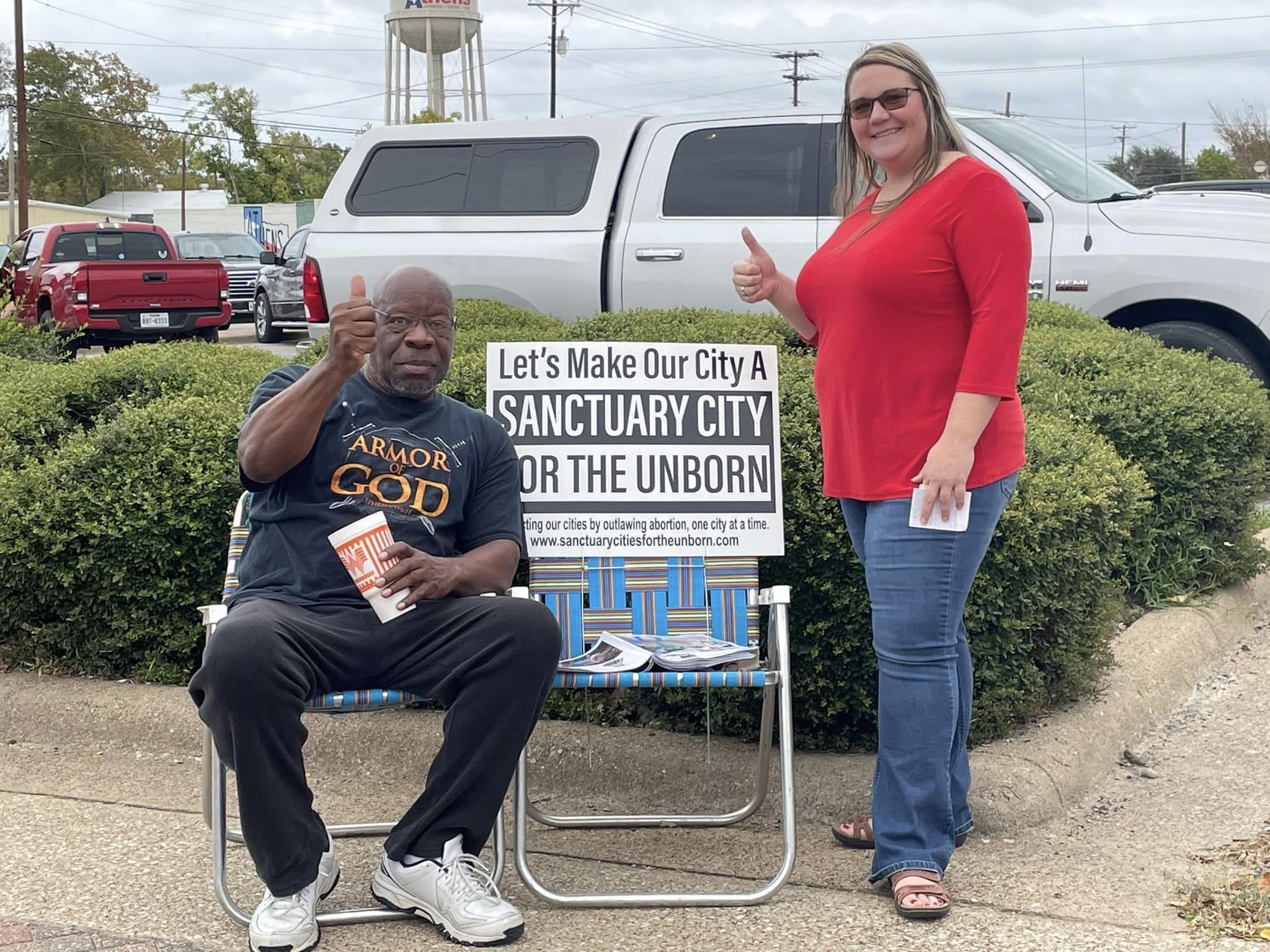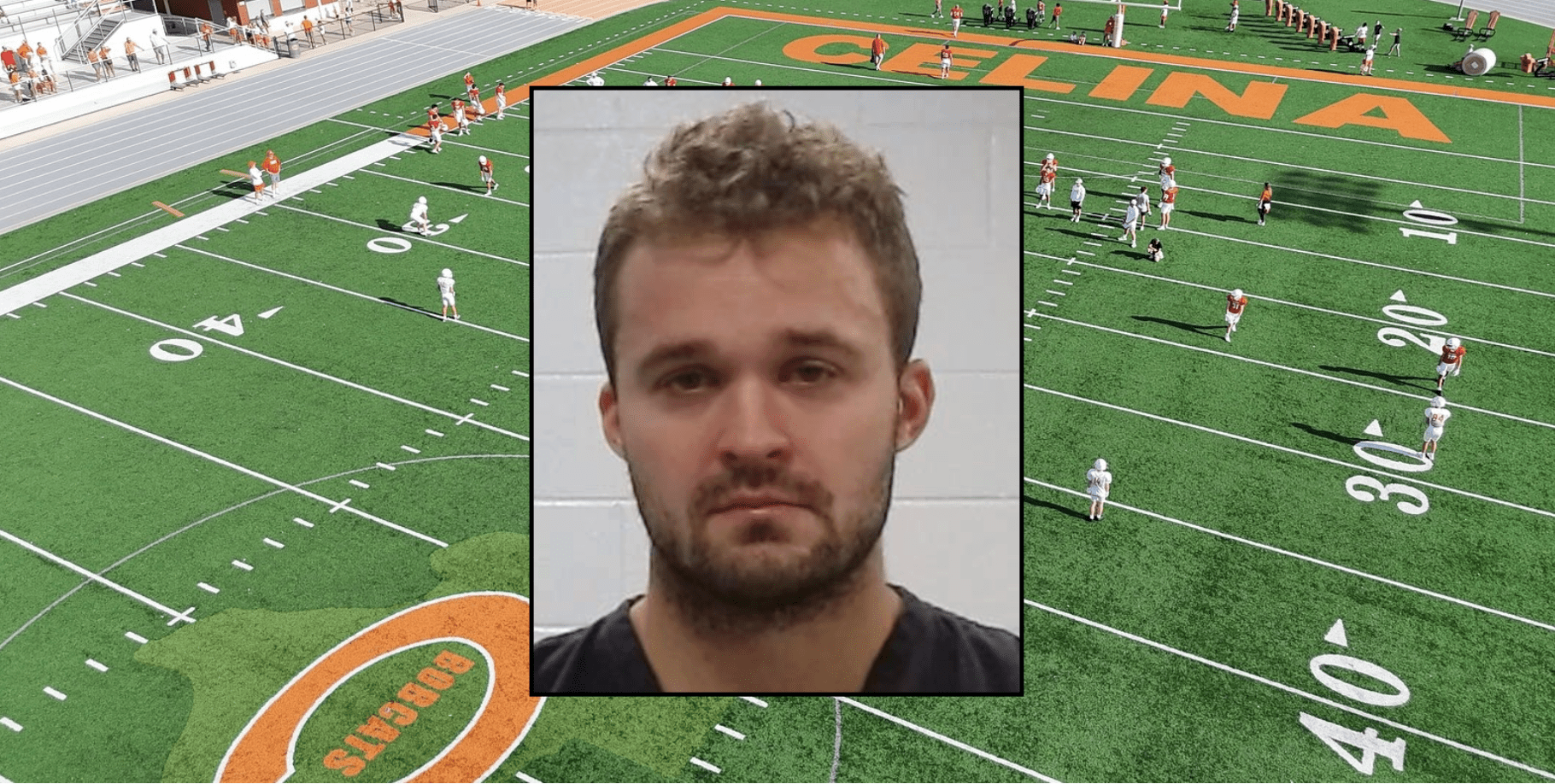This November 8, citizens in four cities in Texas are considering ordinances that would, if passed, consider their them “sanctuary cities for the unborn.” Those four cities are Abilene (pop. 124,407), Athens (pop. 13,121), Plainview (pop. 22,343), and San Angelo (pop. 101,612). While supporters of the Sanctuary Cities for the Unborn effort are optimistic that victories will be obtained in all four cities, the amount of misinformation concerns many as falsehood tends to spread faster than truth.
On November 2, KLST in San Angelo ran a story on the Concho Valley Homepage entitled “Is San Angelo’s proposed ‘sanctuary city of the unborn’ ordinance enforceable?” The story was largely based on a previous story run by KTAB in Abilene on the Big Country Homepage on October 20, entitled“Is Abilene’s potential Sanctuary City for the Unborn ordinance enforceable? Local level ballot measure raises concerns ahead of November election.” While members of the Sanctuary City for the Unborn effort in Abilene reached out to KTAB to correct the story, it was never corrected; the misinformation within that story gave birth to another story 13 days later about 90 miles away in San Angelo.
The following article is a response to that misinformation and an attempt to put an end to the misinformation found in the recent articles put out by KLST in San Angelo and KTAB in Abilene.
Regarding Our Texas Abortion Laws
Right now, Texas has three major laws on their books impacting abortion access: the pre-Roe v. Wade criminal abortion statutes, the Texas Heartbeat Act, and the Human Life Protection Act.
The Texas Heartbeat Act (which went into effect September 1, 2021) prohibits abortions and the aiding or abetting of an abortion from the point of a detectable heartbeat, prohibits government enforcement, and can only be enforced by private citizens filing lawsuits against those who are in violation of the law. The pre-Roe v. Wade criminal abortion statutes (which became fully enforceable again on June 24, 2022, at 9:11 CT) prohibit performing an abortion and the aiding or abetting of an abortion from the moment of conception; however, they are only enforced through the government, not by private citizens. The Human Life Protection Act (which went into effect August 25, 2022) prohibits the same conduct as the pre-Roe v. Wade statutes, but adds greater penalties and allows the attorney general to seek civil penalties up to $100,000 for any violation of the law. The law, like the pre-Roe v. Wade criminal abortion statutes, is just enforced by the government and not by private citizens.
If passed, the Sanctuary Cities for the Unborn ordinances in Abilene, Athens, Plainview, and San Angelo will prohibit performing an abortion and the aiding or abetting of an abortion from the moment of conception under the laws of their city and are enforced both by the government and by private citizens filing lawsuits against those who are in violation of the law. This extends the private enforcement mechanism found in the Texas Heartbeat Act past the point of a detectable heartbeat to the moment of conception. Another thing that is unique about these SCFTU ordinances is that the law would prohibit any abortion performed on a resident of their cities, regardless of where that abortion takes place.
Speaking of the Athens SCFTU ordinance—which is almost identical to the Abilene, Plainview, and San Angelo ordinances—attorney Justin Roberts with Roberts & Roberts shared with KETK / Fox 51 in Tyler, “The major difference here is that the Athens ordinance is more restrictive than the state law. And the deal here is that if somebody helps someone that is outside of the state get an abortion outside of the state, they could still be subject to a penalty in Athens.”
Roberts said whether or not you can “really stop out-of-state conduct between two Athens citizens” is going to be a “major political and judicial question in the coming years.”
The Fourteenth Finding of the San Angelo SCFTU ordinance reads, “The law of Texas explicitly allows municipalities and political subdivisions to outlaw and prohibit abortion, and to establish penalties and remedies against those who perform or enable unlawful abortions.” The finding references Section 311.036(b) of the Texas Government Code, which states, “A statute may not be construed to restrict a political subdivision from regulating or prohibiting abortion in a manner that is at least as stringent as the laws of this state.”
In a May 2021 interview with KCBD in Lubbock, constitutional law professor Josh Blackman said the governor’s signature on the Texas Heartbeat Act supports any city that wishes to outlaw abortion. Speaking of the Texas Heartbeat Act, Blackman shared, “It says that if a local municipality like Lubbock wants to go further and impose greater restrictions on abortion, they can, so they won’t be in conflict. These two laws will be in harmony.”
Regarding Insurance Coverage For Abortions
KLST’s San Angelo coverage, referencing their sister station in Abilene, reads, “KTAB reported some of the most controversial issues with the proposed ordinance were abortion coverage — which could prohibit certain employer-provided health benefits and subject any employee whose company is in city limits and provides health benefits that pay for abortion to thousands of dollars in fines.”
Unfortunately, much of the controversy regarding the ordinance prohibiting insurance coverage for abortions comes from Abilene Councilman Lynn Beard. For months, Councilman Beard has pushed the message that this ordinance, if passed, would impact local businesses—forcing businesses to make difficult decisions for them and their employees. However, the truth of the matter is that this ordinance will not force any local business to change anything about their insurance policies. This is because state law already prohibits employers from providing insurance coverage for abortions.
In 2017, Governor Abbott signed into law House Bill 214, which prohibited insurance providers in the state of Texas from covering abortion procedures as part of their general coverage. While some are just now discovering this, this has been the law of Texas for over five years.
The Guttmacher Institute, which is described as a “leading research and policy organization committed to advancing sexual and reproductive health and rights worldwide,” released an updated report on this subject on October 1, 2022. According to the Guttmacher Institute, abortion coverage is banned in all private insurance plans, health exchanges, and insurance policies for public employees in the State of Texas. The only exceptions are to save the life of the mother or cases in which there is a “substantial and irreversible impairment of a major bodily function.”
Anyone who reads any one of the four proposed SCFTU ordinances will see that this conclusion reached by the Guttmacher Institute is consistent with the wording of the ordinance.
The Abilene SCFTU ordinance reads in Section 20.88.(a):
It shall be unlawful for any employer in the city of Abilene, Texas, and for any person acting on that employer’s behalf, to offer, provide, or arrange for coverage of abortion in any health-insurance policy or plan, flexible spending account, health savings account, or any other benefit provided to its employees, except for abortions performed in response to a life-threatening physical condition aggravated by, caused by, or arising from a pregnancy that, as certified by a physician, places the woman in danger of death or a serious risk of substantial impairment of a major bodily function unless an abortion is performed.
So the question becomes, What do the proposed ordinances do which the current laws do not?
The Abilene ordinance states in Section 20.88(b): “Whoever violates this section shall be subject to the maximum penalty permitted under Texas law for the violation of a municipal ordinance governing public health, and each violation shall constitute a separate offense.”
If this law is adopted and a business in the city violates the law of the city, the city has the ability to fine the business $2,000 per violation. If the law is adopted, officials in the city will also have a responsibility to report employers who are guilty of this act to the appropriate district attorneys for criminal prosecution under article 4512.2 of the Revised Civil Statutes and Section 7.02 of the Texas Penal Code.
In addition to fines imposed by the city, Section 20.92(a) of the Abilene ordinance creates a private right of action, stating, “Any person, other than an officer or employee of a state or local governmental entity in this state, may bring a civil action in state court against any person who violates or intends to violate . . . 20.88.”
Chapter 171.208(a) of the Texas Health and Safety Code already allows for this, stating: “Any person, other than an officer or employee of a state or local governmental entity in this state, may bring a civil action against any person who . . . knowingly engages in conduct that aids or abets the performance or inducement of an abortion, including paying for or reimbursing the costs of an abortion through insurance or otherwise.”
So, what makes this state law different from the proposed local law? The state law is a part of the Texas Heartbeat Act, only allowing citizens to file lawsuits against abortionists who perform abortions and those who aid and abet the abortion of children with a detectable heartbeat. The proposed local law goes further (as allowed in Sec. 171.206, b3), allowing citizens to file lawsuits against abortionists who perform abortions and those who aid and abet the abortion of children from the moment of conception.
Regarding Abilene-based Attorney Kristin Postell’s Concerns
KLST’s San Angelo piggybacks off of KTAB’s Abilene coverage, airing the concerns of Abilene-based attorney Kristin Postell. The only thing about the ordinance that Postell got right is the fact that the Abilene ordinance does not have a statute of limitations. However, even though she got that point right, she got the meaning completely wrong.
Postell states, “Murder and sexual assault, those kind of things don’t have statutes of limitations. But the way this is written, there is nothing that prevents anyone to say, ‘Hey, somebody had an abortion in the ’80s, and I want to sue them.’”
First of all, the Abilene ordinance does not allow anyone to sue the mother of the unborn child. Section 20.91 (j) clearly states, “Under no circumstance may a civil action under this section be brought against the mother of the unborn child that has been aborted, or the pregnant woman who seeks to abort her unborn child.”
Secondly, if passed, the Abilene ordinance would go into effect after the votes are canvassed. The ordinance would then apply from that point forward, not 40 years ago. The idea that someone could be sued under this city ordinance for an abortion they had in the 1980s is just not true. The ordinance does not allow lawsuits against the mother of the unborn child, and the ordinance is not retroactive.
The SCFTU ordinances do not get in the way of the pre-existing state laws, but rather compliment one another. One of the reasons why the Abilene ordinance is much longer than the Lubbock ordinance is due to how much the Abilene ordinance references not just the pre-Roe v. Wade criminal abortion statutes, but also the Texas Heartbeat Act.
Again, Postell got the ordinance totally wrong when she said, “It’s trying to give a private cause of action so someone can sue somebody and get money if they try to get an abortion.” As it was stated before, the ordinance does not allow lawsuits against the “mother of the unborn child that has been aborted, or the pregnant woman who seeks to abort her unborn child.”
In Closing
While several of those working behind the scenes in Abilene, Athens, Plainview, and San Angelo do not believe that the misinformation spread by KTAB Abilene and KLST San Angelo is going to cost them their elections, they do believe that the misinformation is going to cause some who would vote for the ordinance to either not vote or vote against the ordinance in the final days of the election.
When citizens of these cities cast their final votes, one can only hope their votes are cast based on accurate information and not misinformation.
This is a commentary published with the author’s permission. If you wish to submit a commentary to Texas Scorecard, please submit your article to submission@texasscorecard.com.





